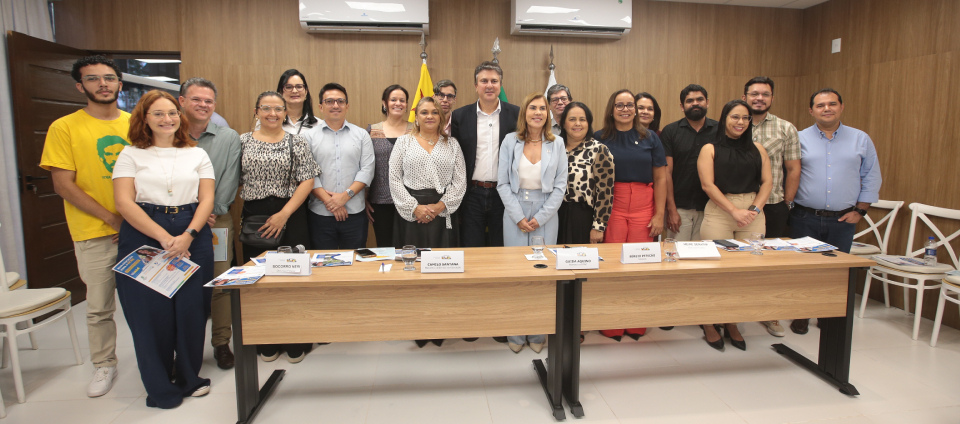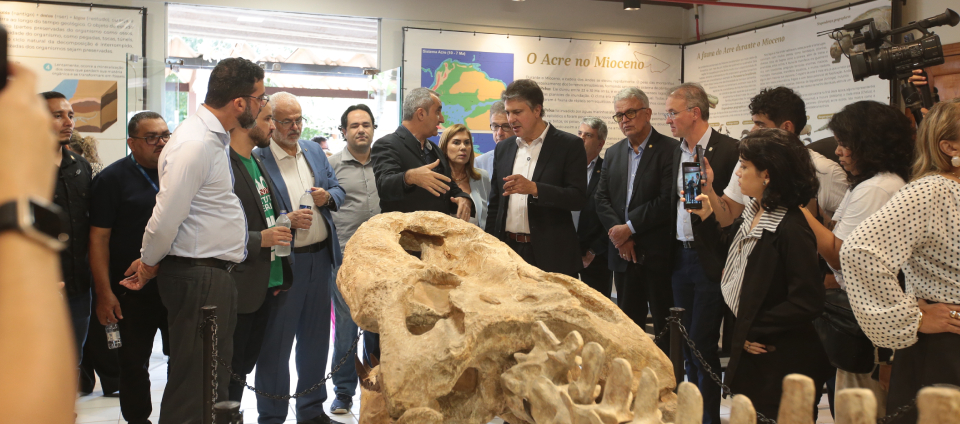ACRE
The Hysterical Crypto Bubble Somehow Became Respectable
PUBLICADO
1 ano atrásem
Until now, the phrase crypto winter meant that cryptocurrency traders were facing hard times: a period of tumbling and depressed prices that had to be weathered until the good times returned. Today, though, the cryptocurrency industry is enjoying an end-of-year season more akin to “brat summer”: This month, crypto prices hit previously unheard-of highs, with bitcoin trading above $100,000. In this new Era of Good Feelings—to borrow a phrase from early-19th-century American history—skeptics have become believers, and a digital-economic instrument that was designed to circumvent, if not replace, the traditional financial system is becoming more and more integrated into it.
The catalyst for this boom, of course, was last month’s election of Donald Trump. Bitcoin’s price fell this week, but it’s still up almost 40 percent since November 5, and other major cryptocurrencies, such as ethereum and ripple, have seen similar spikes. It’s not hard to see why. Trump nominated Cantor Fitzgerald CEO and crypto enthusiast Howard Lutnick to be his secretary of commerce. He named Paul Atkins, also a crypto advocate, as the next head of the Securities Exchange Commission, replacing Gary Gensler, who became crypto’s bête noire for bringing lawsuits against the biggest crypto exchanges and numerous other players in the industry. And Trump recently repeated his campaign promise to set up a Bitcoin Strategic Reserve, which would require the Treasury Department to purchase billions of dollars’ worth of the cryptocurrency and hold it as a “permanent national asset.”
On top of the regulatory environment growing markedly more crypto-friendly, other bullish signs have emerged as well. Last week, the investment giant BlackRock, which back in January was one of 10 companies to issue exchange-traded funds tied to bitcoin, released a report suggesting that investors “with suitable governance and risk tolerance” (meaning tolerance for little governance and lots of risk) should consider having as much as 2 percent of their assets in bitcoin. And MicroStrategy, a software company whose business nowadays consists almost entirely of issuing stock and convertible debt in order to buy bitcoin, was just added to the Nasdaq-100 after its stock rose more than 600 percent in the first 10 months of the year. All of the good news has bitcoin owners—also known as HODLers, a moniker derived from a common online typo of hold that was then also said to stand for “hold on for dear life”—feeling buoyant: On X, predictions of bitcoin hitting $1 million by the end of 2025 are easy to find.
I first wrote about bitcoin in 2011, when one Bitcoin cost about $14, and even then, I thought it was a bubble. Had I just taken a flyer and bought $1,000 of it, I’d be a multimillionaire today. So for longtime bitcoin skeptics like me, a measure of chagrin at having been so wrong about crypto’s evolution is difficult to avoid. At the same time, what’s been fascinating about the popular embrace of bitcoin is that the reasons to be skeptical of it never disappeared: It’s still an enormously volatile asset; its price is still mostly dependent on sentiment rather than underlying fundamental value; it’s still ill-suited to be a widely used digital currency. What’s changed is that the investment world has decided none of those things really matter. As is true of gold, bitcoin is valuable because people have collectively decided it’s valuable. In effect, HODLers have succeeded in conjuring a respectable asset out of thin air.
James Surowiecki: The Trump-whim economy is here
Respectability doesn’t mean stability. The history of crypto over the past decade is one of big spikes driven by positive sentiment, rapidly followed by crashes. Bitcoin’s value has fallen by 49 percent or more on at least half a dozen occasions, and there’s no reason to believe that it’s now reached a permanently high plateau. (Indeed, just this past week, after hitting an all-time high of about $108,000, bitcoin’s price fell almost 15 percent in days, and MicroStrategy saw its stock fall more than 40 percent over the past month.) Yet even if determining a fair price for Bitcoin remains a near-impossible task (which is why I’ll never buy it), treating its value as simply the product of a hysterical bubble mentality—which was once a common critique—feels outdated. In keeping with its buccaneering, unregulated origins, the crypto industry is still rife with sketchy so-called memecoins and shitcoins, not to mention promoters promising 1,000 percent returns in a matter of days. But bitcoin itself has become practically blue-chip.
The reasons bitcoin has become so highly valued are not the reasons that advocates originally argued would make it valuable. Bitcoin was designed to be a currency that people could use for trustless transactions—transactions that could be carried out without need for a financial intermediary such as a bank. But transactions in which bitcoin is used to buy or sell goods and services make up only a tiny fraction of the currency’s total trading volume, most of which is made up of people buying or selling bitcoin itself. Bitcoin’s real use, it turns out, is not as a medium of exchange, but as a secure, portable, accessible store of value, something that can be quite valuable, particularly in countries where inflation or confiscatory government policy is a problem.
Similarly, bitcoin was designed to facilitate decentralized person-to-person transactions, but most bitcoin trading, at least in the West, now takes place on centralized exchanges. Again, in its liberatory promise, bitcoin was supposed to not just be independent of traditional financial institutions and government, but also enable alternatives to them. Yet the big engine of the price boom of the past two years has been bitcoin’s integration into the conventional investment industry (through such vehicles as exchange-traded funds, or ETFs), increased purchases by institutional investors and corporations, and now the prospect of legitimization by the government itself. That may include government buying of bitcoin—though exactly why Uncle Sam would want to own such a volatile asset is a question no one has yet answered persuasively.
This integration has a couple of striking consequences. The first is that, for all of its benefits, it also adds a whole new set of risks to an already risky asset—if, say, Trump does not follow through on his promise to set up a Strategic Bitcoin Reserve, bitcoin’s price will likely take a tumble. The other, more substantive, consequence is that the revolutionary promise of bitcoin has largely vanished—no one really thinks it will replace, or even meaningfully weaken, fiat currencies such as the dollar, nor is it going to threaten the financial primacy of Wall Street. Cryptocurrencies will always have a special appeal for people who are skeptical of the system and convinced that economic disaster is on the horizon. But what the past six weeks have shown is that most bitcoin HODLers don’t want to bring down the system. They want bitcoin to become a part of it.
Relacionado
ACRE
Em caravana, ministro da Educação, Camilo Santana, visita a Ufac — Universidade Federal do Acre
PUBLICADO
5 dias atrásem
25 de fevereiro de 2026A Ufac recebeu, nesta quarta-feira, 25, na Reitoria, campus-sede, a visita do ministro da Educação, Camilo Santana, no âmbito da caravana Aqui Tem MEC, iniciativa do Ministério da Educação voltada ao acompanhamento de ações e investimentos nas instituições federais de ensino.
Durante a agenda, o ministro destacou que a caravana tem percorrido instituições federais em diferentes Estados para conhecer a realidade de cada campus, dialogar com gestores e a comunidade acadêmica, além de acompanhar as demandas da educação pública federal.
Ao tratar dos investimentos relacionados à Ufac, a reitora Guida Aquino destacou a obra do campus Fronteira, em Brasileia, que conta com R$ 40 milhões em recursos do Novo Programa de Aceleração do Crescimento (PAC). A estrutura terá seis cursos, com salas de aula, laboratórios, restaurante universitário e biblioteca.
Abordando a visita, Guida ressaltou a importância da universidade para o Estado e a missão da educação pública. “A Ufac é a única universidade pública federal de ensino superior do Acre e, por isso, tem papel estratégico na formação e no desenvolvimento regional. A educação é que transforma vidas, transforma o país.”

Outro tema tratado durante a agenda foi a implantação do Hospital Universitário no Acre. Camilo Santana afirmou que o Estado é o único que ainda não conta com essa estrutura e informou que o governo federal dispõe de R$ 50 milhões, por meio do Novo PAC, para viabilizar adequações e a implantação da unidade.
Ele explicou que a prioridade continua sendo a concretização de uma parceria para doação de um hospital, mas afirmou que, se isso não ocorrer, o MEC buscará outra alternativa para garantir a instalação do serviço no Estado. “O importante é que nenhum Estado desse país deixe de ter um hospital universitário”, enfatizou.

Guida reforçou a importância do projeto e disse que o Hospital Universitário já poderia ser celebrado no Acre. Ao defender a iniciativa, contou que a unidade contribuiria para qualificar o atendimento, reduzir filas de tratamento fora de domicílio e atender melhor pacientes do interior, inclusive em casos ligados às doenças tropicais da Amazônia. Em tom crítico, declarou: “O cavalo selado, ele só passa uma vez”, ao se referir à oportunidade de implantação do hospital.
Após coletiva de imprensa, o ministro participou de reunião fechada com pró-reitores, gestores, políticos e parlamentares da bancada federal acreana, entre eles o senador Sérgio Petecão (PSD) e as deputadas Meire Serafim (União) e Socorro Neri (PP).
A comitiva do MEC foi formada pela secretária de Educação Básica, Kátia Schweickardt; pelo secretário de Educação Profissional e Tecnológica, Marcelo Bregagnoli; pelo secretário de Educação Superior, Marcus Vinicius David; e pelo presidente da Empresa Brasileira de Serviços Hospitalares, Arthur Chioro.
Laboratório de Paleontologia
Depois de participar de reunião, Camilo Santana visitou o Laboratório de Paleontologia da Ufac. O professor Edson Guilherme, coordenador do espaço, apresentou o acervo científico ao ministro e destacou a importância da estrutura para o avanço das pesquisas no Acre. O laboratório foi reformulado, ampliado e recentemente reinaugurado.

Aberto para visitação de segunda a sexta-feira, em horário de expediente, exceto feriados, o local reúne fósseis originais e réplicas de animais que viveram no período do Mioceno, quando o oeste amazônico era dominado por grandes sistemas de rios e lagos. A entrada é gratuita e a visitação é aberta a estudantes e à comunidade em geral.
Relacionado
A Pró‑Reitoria de Graduação (Prograd) da Universidade Federal do Acre (Ufac) é o órgão responsável pelo planejamento, coordenação e supervisão das atividades acadêmicas relacionadas ao ensino de graduação. Sua atuação está centrada em fortalecer a formação universitária, promovendo políticas e diretrizes que assegurem a qualidade, a integração pedagógica e o desenvolvimento dos cursos de bacharelado, licenciatura e demais formações presenciais e a distância. A Prograd articula ações com as unidades acadêmicas, órgãos colegiados e a comunidade universitária, garantindo que os currículos e práticas pedagógicas estejam alinhados aos objetivos institucionais.
Entre as principais atribuições da Prograd estão a coordenação da política de ensino, a supervisão de programas de bolsas voltadas à graduação, a análise e encaminhamento de propostas normativas e a participação em iniciativas que promovem a reflexão e o diálogo sobre o ensino superior.
A Prograd é organizada em três diretorias, cada uma com funções específicas e complementares:
Diretoria de Apoio ao Desenvolvimento do Ensino — responsável por ações estratégicas voltadas ao desenvolvimento de metodologias, à regulação e ao apoio pedagógico dos cursos de graduação.
Diretoria de Apoio à Formação Acadêmica — dedicada a acompanhar e apoiar as atividades acadêmicas dos estudantes, incluindo estágios, mobilidade estudantil e acompanhamento da formação acadêmica.
Diretoria de Apoio à Interiorização e Programas Especiais — voltada à gestão de programas especiais, políticas de interiorização e ações que ampliam o acesso e a permanência dos alunos em diferentes regiões.
A Prograd participa, ainda, de iniciativas que promovem a reflexão e o diálogo sobre o ensino superior, integrando docentes, estudantes e gestores em fóruns, encontros e ações que visam à atualização contínua dos processos formativos e ao atendimento das demandas sociais contemporâneas.
Com compromisso institucional, a Pró‑Reitoria de Graduação contribui para que a UFAC cumpra seu papel educativo, formando profissionais críticos e comprometidos com as realidades local e regional, garantindo um ambiente acadêmico de excelência e responsabilidade social.
Ednacelí Abreu Damasceno
Pró-Reitora de Graduação
Relacionado
ACRE
Orientação sobre revalidação e reconhecimento de diplomas — Universidade Federal do Acre
PUBLICADO
5 dias atrásem
24 de fevereiro de 2026Orientações para abertura de processo administrativo e procedimentos acerca da revalidação de diploma de graduação e reconhecimento de diplomas de pósgraduação stricto sensu emitidos por instituições estrangeiras, conforme a Resolução CEPEX Nº 003, de 14 de março de 2017.
Abertura do Processo
I – Preenchimento do Formulário Padrão (conforme modelo disponibilizado);
II – Documentos pessoais exigidos:
• Cópia do documento de identidade para brasileiros ou naturalizados, e, se estrangeiro, cópia da identidade e do visto permanente, expedido pela Superintendência da Polícia Federal, ou passaporte com visto permanente, concedido pela autoridade competente;
• Comprovante de residência;
• Comprovante de quitação com o serviço militar, para brasileiros do sexo masculino;
• Comprovante de quitação com o serviço eleitoral, para brasileiros e naturalizados;
III – Documentos acadêmicos exigidos:
• Para revalidação, conforme Art. 10, da resolução CEPEX Nº 003, de 14 de março de 2017.
• Para reconhecimento, conforme Art. 33, da resolução CEPEX Nº 003, de 14 de março de 2017.
IV – Preenchimento do Termo de aceitação, exclusividade e autenticidade, conforme modelo disponibilizado pelo NURCA;
V – Solicitação de abertura de processo no Protocolo Geral da UFAC, direcionado ao NURCA, com a apresentação da documentação exigida nos itens de I a IV;
Submissão da documentação na Plataforma Carolina Bori – Link: http://plataformacarolinabori.mec.gov.br
O interessado deve submeter a documentação no formato .pdf, agrupando diferentes documentos em arquivo único conforme indicado abaixo:
Arquivo 1 em .PDF:
1. Formulário Padrão preenchido (conforme modelo disponibilizado);
2. Documentos pessoais exigidos:
a) Cópia do documento de identidade para brasileiros ou naturalizados, e, se estrangeiro, cópia da identidade e do visto permanente, expedido pela Superintendência da Polícia Federal, ou passaporte com visto permanente, concedido pela autoridade competente;
b) Comprovante de residência;
c) Comprovante de quitação com o serviço militar, para brasileiros do sexo masculino;
d) Comprovante de quitação com o serviço eleitoral, para brasileiros e naturalizados;
Arquivo 2 em PDF:
1. Diploma e Histórico (Itens I e II do Artigo 10 ou Itens II e IV do artigo 33 da Resolução nº 003, de 14 de março de 2017);
Arquivo 3 em PDF:
1. Documentos acadêmicos exigidos excetuando-se os do Arquivo 2:
a) Para revalidação, conforme Art. 10, da resolução CEPEX Nº 003, de 14 de março de 2017.
b) Para reconhecimento, conforme Art. 33, da resolução CEPEX Nº 003, de 14 de março de 2017, excetuando item III (vide Arquivo 5).
Arquivo 4 em PDF:
1.Termo de aceitação, exclusividade e autenticidade, preenchido conforme modelo disponibilizado pelo NURCA; da resolução CEPEX Nº 003, de 14 de março de 2017.
Arquivo 5 em PDF:
a) Para os casos de reconhecimento: Exemplar digital da tese ou dissertação com registro de aprovação da banca examinadora e documentações complementares, conforme item III do Art. 33 da resolução CEPEX Nº 003, de 14 de março de 2017.
Fluxo do Processo
VI – Recebimento do processo pelo NURCA e encaminhamento para o Centro pertinente, que constituirá Comissão;
VII – Retorno do processo ao NURCA no prazo de 15 dias;
VIII – Sendo favorável o parecer da Comissão, será autorizada a emissão de GRU, bem como, o seu devido pagamento (R$ 1.200,00 – graduação; mestrado – R$ 1.500,00 e doutorado R$ 2.000,00), devendo ser incluída a via original ou cópia autenticada por servidor da UFAC no processo de revalidação.
a) Em caso de parecer negativo, o processo será disponibilizado para consulta, retirada de documentação e/ou ajuste quando for pertinente.
IX – Retorno do processo ao Centro para a Comissão concluir a revalidação no prazo restante dos seis meses.
Termo de Aceitação, Exclusividade e Autenticidade
_________________________________________________________________________________________________________
Links Úteis
Relacionado
PESQUISE AQUI
MAIS LIDAS

 ACRE7 dias ago
ACRE7 dias agoReitora recebe honraria do TJ-AC e assina acordo para evento — Universidade Federal do Acre

 Economia e Negócios6 dias ago
Economia e Negócios6 dias agoSaisi to Exhibit at MWC2026 Barcelona: Delivering Advanced Time-Frequency & Voice Communication Solutions
- ACRE5 dias ago
Orientação sobre revalidação e reconhecimento de diplomas — Universidade Federal do Acre

 ACRE5 dias ago
ACRE5 dias agoEm caravana, ministro da Educação, Camilo Santana, visita a Ufac — Universidade Federal do Acre
Warning: Undefined variable $user_ID in /home/u824415267/domains/acre.com.br/public_html/wp-content/themes/zox-news/comments.php on line 48
You must be logged in to post a comment Login